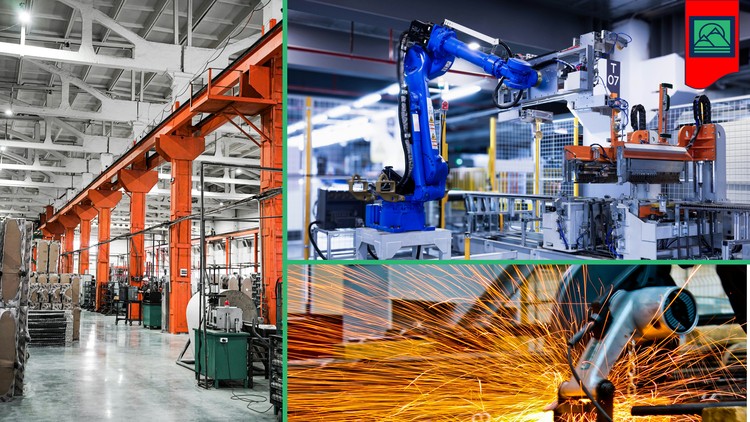
A short & concise course on what you need to know about Sustainable Manufacturing
What you will learn
Understand the Concept of Sustainable Manufacturing
Learn the Key Areas of Sustainable Manufacturing
Discover Emerging Advances in Sustainable Manufacturing
Understand the Importance of Industry 4.0 and Circular Economy in Sustainable Manufacturing
Add-On Information:
Note➛ Make sure your 𝐔𝐝𝐞𝐦𝐲 cart has only this course you're going to enroll it now, Remove all other courses from the 𝐔𝐝𝐞𝐦𝐲 cart before Enrolling!
- Uncover the critical imperative for integrating environmental stewardship and economic viability into modern production systems.
- Examine the transformation of traditional linear economies into resilient, regenerative models that prioritize resource efficiency and material circularity.
- Gain insight into the competitive advantages, market opportunities, and enhanced brand reputation derived from sustainable operational excellence.
- Explore how sustainable practices effectively mitigate operational risks, ensure regulatory compliance, and foster long-term stakeholder value.
- Grasp the foundational principles and practical application of Life Cycle Assessment (LCA) to evaluate environmental impacts from cradle to grave.
- Investigate the synergy between Lean Manufacturing methodologies and sustainability objectives for profound waste reduction and efficiency gains.
- Delve into specific strategies for reducing energy consumption, optimizing material use, and effectively managing diverse industrial waste streams.
- Understand the crucial role of advanced material selection, design for disassembly, and modularity in enhancing product longevity and recyclability.
- Explore how advanced materials, including bio-based polymers, recycled composites, and smart textiles, redefine product and process sustainability.
- Analyze the transformative impact of Additive Manufacturing (3D printing) in enabling on-demand production, minimizing material waste, and localizing supply chains.
- Discover the application of Artificial Intelligence and Machine Learning for predictive resource management, process optimization, and anomaly detection in sustainable systems.
- Investigate the integration of diverse renewable energy sources and smart grid technologies within manufacturing facilities for a significantly reduced carbon footprint.
- Review innovative water conservation techniques, closed-loop systems, and advanced wastewater treatment technologies applicable to industrial settings.
- Appreciate the complexities and best practices involved in building resilient and sustainable global supply chains, from ethical sourcing to responsible logistics.
- Recognize the evolving global regulatory landscape, international standards, and policy drivers shaping the future of sustainable manufacturing practices.
- Identify key performance indicators (KPIs) and robust metrics for monitoring, reporting, and continuously improving an organization’s sustainability performance.
- Consider the broader societal and ethical dimensions of responsible manufacturing, encompassing fair labor practices and positive community impact.
- PROS:
- Provides a holistic yet concise understanding of sustainable manufacturing’s past, present, and future trajectory.
- Equips participants with practical insights and actionable knowledge to implement sustainability initiatives in their organizations.
- Highlights cutting-edge technologies and strategic frameworks vital for future-proofing manufacturing operations.
- Fosters a forward-thinking mindset crucial for innovation and competitive advantage in a rapidly evolving global market.
- Offers a critical perspective on how to balance environmental responsibility with economic viability.
- CONS:
- As a “short & concise” course, it may not delve into highly specialized technical implementation details for every discussed advanced topic.
English
language